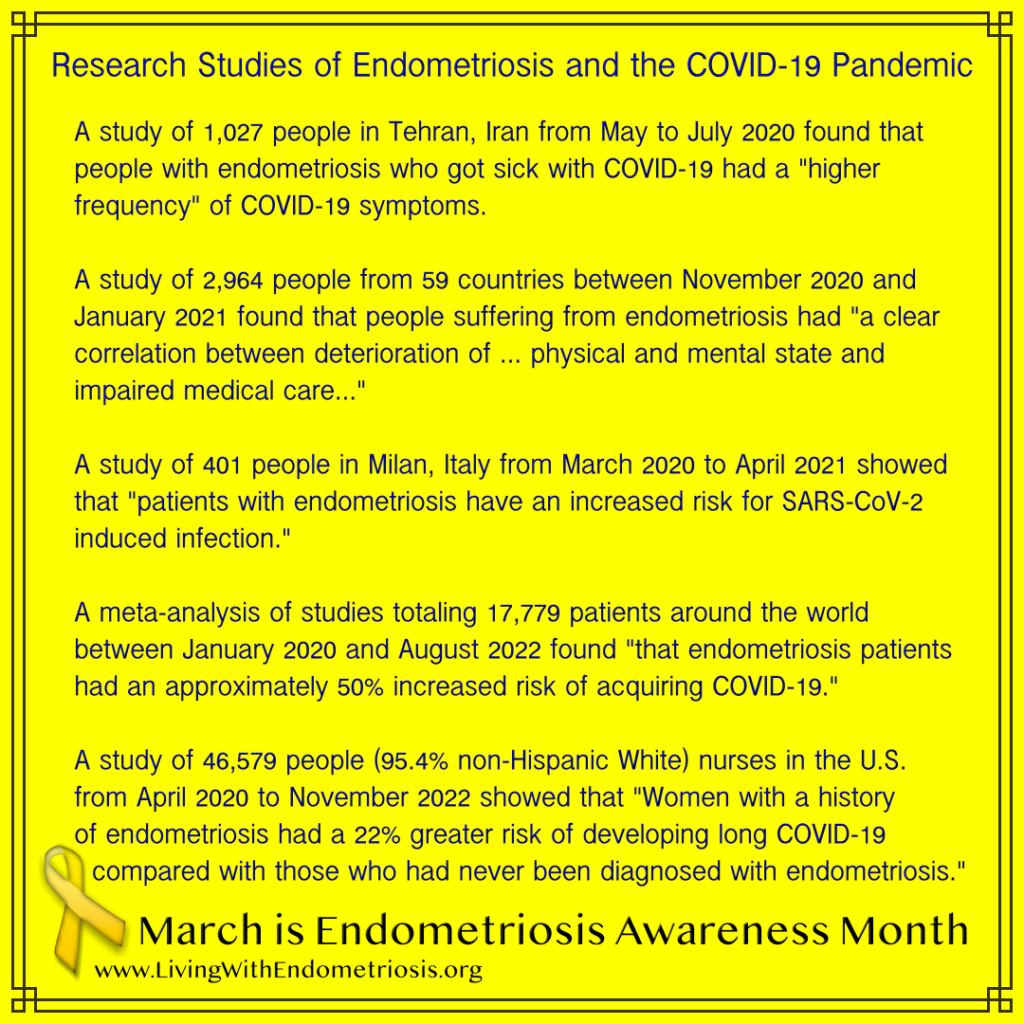
Research Studies of Endometriosis and the COVID-19 Pandemic
Does endometriosis increase susceptibility of COVID-19 Infections? – March, 2021
https://link.springer.com/article/10.1186/s12905-021-01270-z
A study of 1,027 people in Tehran, Iran from May to July 2020 found that people with endometriosis who got sick with COVID-19 “had a lower frequency of asymptomatic and febrile infection, but higher frequency of other symptoms, including gastrointestinal, dermatologic, hematologic, and neuronal disorders.”
COVID-19 pandemic and the consequential effect on patients with endometriosis – March, 2022
https://academic.oup.com/hropen/article/2022/2/hoac013/6550509
A study of 2,964 people from 59 countries between November 2020 and January 2021 found “a clear correlation between deterioration of the reported physical and mental state and impaired medical care for patients suffering from endometriosis during the COVID-19 pandemic.”
COVID-19 susceptibility in endometriosis patients – July, 2022
https://onlinelibrary.wiley.com/doi/full/10.1111/aji.13602
A study of 401 people in Milan, Italy from March 2020 to April 2021 showed that “patients with endometriosis have an increased risk for SARS-CoV-2-induced infection.”
Endometriosis and COVID-19: A Systematic Review and Meta-Analysis – October, 2022
https://www.ncbi.nlm.nih.gov/pmc/articles/PMC9657778/
A meta-analysis of studies totaling 17,779 patients between January 2020 and August 2022 found “that 7.5% of endometriosis patients were infected with SARS-CoV-2, and that endometriosis patients had an approximately 50% increased risk of acquiring COVID-19. When compared to the general population, the prevalence of COVID-19 in endometriosis patients seems to be higher.”
Association of laparoscopically-confirmed endometriosis with long COVID-19 – March, 2023
https://www.ajog.org/article/S0002-9378(23)00177-1/fulltext
A study of 46,579 people (95.4% non-Hispanic White) nurses in the United States from April 2020 to November 2022 showed that “Women with a history of laparoscopically-confirmed endometriosis had a 22% greater risk of developing long COVID-19 compared with those who had never been diagnosed with endometriosis.”
